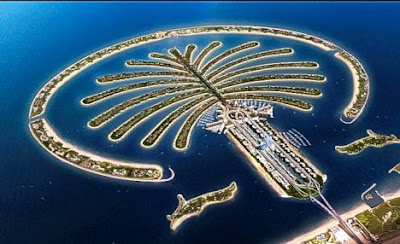The Real Meaning Of Sand-wich?
Dear Reader,
To see a World in a Grain of Sand
And a Heaven in a Wild Flower,
Hold Infinity in the palm of your hand
And Eternity in an hour.
- William Blake.
This week we have had, of course, the world-wide demonstration by schoolchildren and others against the slow-shoe-shuffle performance of the Establishment in getting its act together about Climate Change. But the call to action by those who are to inherit the Earth has not come early enough; it should really have been voiced 10 or more years ago to trigger a strong change of thinking and action then, not now at the 11th hour.
To those involved in the front-line, it was perfectly clear back then what was evolving, and also to those that had (even as onlookers) studied the situation over the preceding 50 years. But world governments had long mastered the art of keeping people away from the truth, and people don't like to change their habits, nor think they're going to get poorer.
In any case, money had to be made first to pay for the safety of the richest. Or at least that is how it now appears in the year 2019.
But it's not just Climate Change, is it? - though that's a big enough topic. In reality, the issue has long been about how we treat the planet and all the creatures that are on it. It's our very behaviour that is in question! Even the larger creatures have been disappearing at an alarming rate, but it's not just the larger ones: the state of the smallest is also critical, and that means that the food chain (from the bottom up) is severely affected.
As to one way by which the smallest creatures are affected has come to light in an hour-long documentary that I only came to see yesterday. In it was described in comprehensive detail how not only rivers but ocean beds have been dredged for sand for a long time now. The reason? Because the world's building industry demands it; the construction of buildings and roads is so much cheaper when you use concrete (obviously a sand-based commodity). It appears that it is no longer possible to find sand in traditional sources as it has run out there, and dredging has been the main mode of supply for some time now, as well as its mining and other dubious methods.
You might ask: "Why not utilise the sand in the deserts?" The problem here is that the sand of the deserts is not coarse or rough enough. Desert sand is constantly being refined smooth and granular by winds and renders the sand unusable for building. And, in any case, when the desert sands have been utilised, what then? But that is purely a rhetorical question as it happens.
A good account of the situation is described in this Guardian article. This article was written a year ago - but what interest has been taken in this? It seems not to have been read by those who need to read it. The topic has evaded discussion in Parliament (it seems) as it might cause discomfort in the construction industry. The British approach is to be 'nice' and talk about the weather. Oh, wait, isn't that the topic called Climate Change?
To know more, please see this documentary.
So, dredging is now the means for most of the supply of sand. The horrifying corollary to that method, of course, is that when these big dredgers dredge, they don't just pick up sand - they also dredge up small living creatures and destroy them, and the life systems at the bottom of the waterways. This is now one of the biggest causes of the disappearance of the food chain at the bottom level. And it's not only that which is affected - it's also the polluting effect of dredging surrounding areas, even affecting the supply and availability of fish. And the pollution of land.
The problem is hugely increasing. We have long known about the issues surrounding fossil-fuel extraction and fracking, but the matter of sand seems to have passed most people by.
It's almost comical that news was published this year (2019) about the loss of the sand on the beaches at Tenby, in Wales. It's been washed away and replaced with nowt. But the powers-that-be simply and glibly state, "Oh, the sands will be back". Perhaps.
What's the alternative approach? Well, the building industry could revert a lot more to utilising ancient methods of building that have been long-proven. For example, the utilisation of straw left over after harvests. But will they? Business is famous for looking at the bottom line, so for as long as sand is the cheapest base to use, why change (they will say)? Perhaps the way in which builders now work is so ingrained they cannot see the sand for the sand dunes!
Let's at the very least put a stop to the vanity projects at places such as Dubai and Singapore, which are a big part of the sand problem. How do we do that? By no longer giving them our custom.
 |
| Dubai vanity project - how much sand had to be dredged to create this? |
Anyhow, we should be happier people when we have less, and a return to that is nigh inevitable. I remember my childhood days in the 1940s and 1950s - before television - with relish. People used to visit one another and enjoy one another's company in a much better way back then. In fact, a great many of our visitors were birds! We do not see anywhere near so many now. And we tended to appreciate what we had.
Thank you for reading this.
Comments
Post a Comment